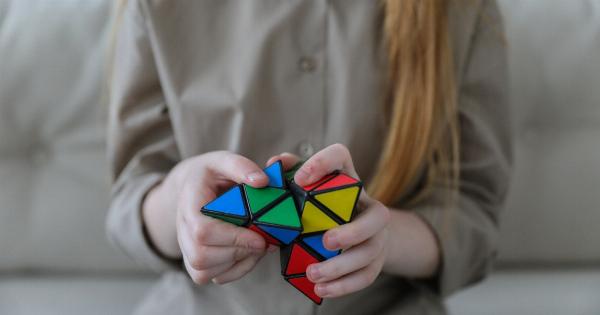Learning is often associated with hard work, discipline, and sacrifice. However, the journey towards acquiring knowledge and skills doesn’t have to be filled with boredom and drudgery.
In fact, incorporating fun and enjoyment into the learning process can make it more effective and fulfilling. By tapping into our natural curiosity and incorporating activities that engage our senses and emotions, we can create a fun pathway towards effective learning.
1. Gamify Your Learning
Games have long been recognized as a powerful tool for learning. They engage our attention, foster problem-solving skills, and provide instant feedback.
Whether you’re learning a new language, studying history, or mastering complex mathematical concepts, incorporating gamified elements into your learning routine can make the process more enjoyable. Language learning apps like Duolingo and educational games like Minecraft Education Edition are just a few examples of how gamification can revolutionize the learning experience.
2. Embrace Hands-On Activities
One of the most effective ways to learn is by doing. Hands-on activities allow us to actively participate in the learning process, stimulating both our minds and bodies.
Whether it’s conducting science experiments, building models, or engaging in artistic pursuits, hands-on activities encourage creativity, critical thinking, and problem-solving skills. By making learning a tangible and interactive experience, we can enhance both our understanding and retention of knowledge.
3. Integrate Technology
In today’s digital age, technology has become an integral part of our lives. By harnessing its power, we can transform the way we learn.
Online platforms, educational apps, and interactive multimedia resources provide a wealth of information and engaging experiences. From virtual reality field trips to interactive simulations, technology offers endless opportunities for immersive and enjoyable learning. By utilizing technology as a learning tool, we can cater to various learning styles and individual interests.
4. Incorporate Storytelling
Storytelling has been a fundamental part of human culture for thousands of years. Our brains are wired to absorb information in the form of stories, as narratives evoke emotions and create memorable connections.
By incorporating storytelling into the learning process, we can make it more engaging and relatable. Whether it’s through historical anecdotes, real-life case studies, or fictional narratives, storytelling provides a context for learning and enhances our understanding and retention of information.
5. Foster Group Collaboration
Learning doesn’t have to happen in isolation. Group collaboration can make the learning process more enjoyable and effective.
By working together with peers, we can exchange ideas, challenge each other’s perspectives, and collectively solve problems. Group projects, debates, and discussions foster critical thinking, teamwork, and communication skills. Additionally, social interactions and the sense of community can greatly enhance motivation and engagement with the learning material.
6. Explore the Outdoors
Nature provides a rich and stimulating environment for learning. Taking the learning experience outdoors not only provides a change of scenery but also offers countless opportunities for exploration and discovery.
Whether it’s studying plants and animals, observing natural phenomena, or engaging in outdoor sports and activities, nature-based learning stimulates curiosity, promotes physical activity, and fosters a sense of wonder. By reconnecting with the natural world, we can enhance our learning experience and tap into our innate sense of awe and curiosity.
7. Introduce Competition
Competition can be a powerful motivator for learning. Whether it’s through friendly classroom competitions or online challenges, introducing an element of competition can make the learning process more engaging and exciting.
Competitions encourage us to push ourselves further, strive for personal improvement, and test our knowledge and skills. Additionally, they can promote a growth mindset and provide opportunities for peer-to-peer learning and collaboration.
8. Incorporate Music and Art
Music and art engage our senses and emotions in a unique way, making them excellent tools for effective learning.
Whether it’s through creating art inspired by a particular topic, composing songs to memorize information, or using music and art as a backdrop for studying, these creative outlets enhance our learning experience. Music can improve focus and concentration, while art stimulates creativity and visualization skills. By incorporating music and art into the learning process, we can elevate it to a more enjoyable and holistic experience.
9. Personalize Your Learning Journey
Each individual has their own unique learning style, preferences, and interests. Personalizing your learning journey allows you to tailor the experience to suit your needs and aspirations.
Explore different learning methods, experiment with various resources, and follow your passions. When we are genuinely interested in a topic, the learning process becomes more enjoyable and effective. By recognizing and embracing our individuality, we can create a fun and fulfilling learning pathway.
10. Celebrate Achievements
Finally, it’s important to acknowledge and celebrate your achievements along the learning journey. Recognize the progress you’ve made, both big and small, and reward yourself for your efforts.
Whether it’s through self-reflection, journaling, or celebrating milestones with friends and family, acknowledging your achievements boosts motivation, self-esteem, and overall enjoyment of the learning process. By celebrating your success, you reinforce the positive aspects of learning and cultivate a lifelong love for knowledge.






























